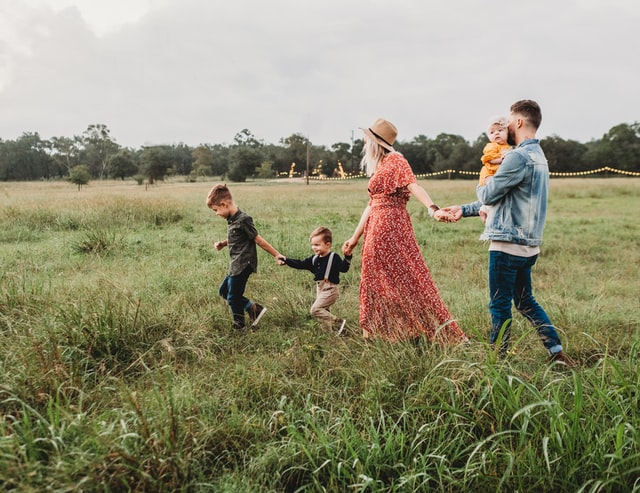Reciprocal Relationship affect on Child’s Emotional and Social Development
The reciprocal relationship can be simply defined as a relationship in which the two parties make an association on the basis of mutual privileges, emotions etc. These reciprocal relationships influence a person’s life till the end of time. As far as children are concerned, their learning is mainly dependent on the engagement of family as it is the members of the family that enhance a child’s experiences and family well being. “Family engagement is responsible for the continuous, mutual and strong association between children and other adult members of the family” (Ref: Bell and Wolfe, 2004).
When a child is of six months, he/she develops a sense of identity and agency. This system helped to focus on the early years social relationship of the child. It also affects the manner how this first social relationship brings transformations in the child’s responses to his/her surroundings. Though this relationship starts as one-sided; it turns out as a reciprocal one with the passage of time. Reciprocity allows this association to work in oth ways i.e. adult-child and child-adult. Thus, it is a common phenomenon that a child may develop several reciprocal relationships concurrently (Wilson, 2003).
Strong Social Emotional Development for Children
As mentioned above, it is in the early months of a child’s life that he/she develops a positive interaction with his/her caregiver and this association develops a sense of self. In the presence of this caregiver, a child feels satisfied due to associative learning. Such feelings of positivity developed in the child elevate into affection for the adult. The maintenance of a warm relationship by the caregiver may result in the development of a mutual love. The amusement and engagement provided by the caregiver strengthens this relationship. Emotional development of a child is thus based on the experiences he/she shares with an adult due to the generation of positive reciprocally pleasing emotions (Wilson, 2003).
It can be said that the most outstanding feature of this relationship is that it turns out as a pleasurable and amusing relationship for both parties. In the absence of this element, it is not possible for the relationship to grow with highest psychological standard. However, the absence of the mentioned relationship-energizing elements may indeed limit the mental and physical outcomes. And this is possible if interaction between the child and the caregiver is based on exceptional amusement and mutual pleasure. Such experiences are indispensable for the development of positive emotions.
Emotional Management
The know-how of life, expression and motional management are the important factors in the social-emotional development of a child. The interpersonal and intra-personal processes help a child to become capable of establishing and maintaining positive, healthy and satisfying relationships with those around him/her. Emotional development takes place when a child is capable enough of identifying and understanding his/her own feelings. Emotional development is of utmost importance as it helps a child in the management of the strong emotions he/she feels and also helps him/her to express those emotions in a productive and positive way. This is due to the emotional development that a child learns to build up and uphold relationships.
Thus, such growing capabilities are helpful for children to develop into a proficient individual who is capable to negotiate progressively more intricate social interactions. They are able to distinguish the voice of their mothers to other women’s voices. The establishment of close relationships with adults, in fact, let children to feel emotionally secure, develop a sense of self and understand the world outside the four walls of a house or classroom. Thus, it is the responsibility of an adult to facilitate the child’s exploration, provide reassurance, fulfill the mental and biological needs, model relationships that are positive and provide the child with unconditional support during difficult periods of life.
Conclusion
To cut a long story short, reciprocal relationships make it easier for the toddlers and infants to develop sympathetic emotions and compassionate feelings about others. This is done when children learn to establish the human connection with their own selves and other people. Early relationships help the children to value the way of thinking of other people and fulfill their expectations. Children also learn the importance of teamwork and sharing through reciprocal relationships and turn out to be better citizens in the future for society. They are then also able to shape their identity with more associations with people who are a major part of their lives including parents, friends, teachers, siblings, spouses, children etc. Thus, the future development of children is all set when they associate themselves with the first caregiver (Bell and Wolfe, 2004).
Every child deserves care giving that is responsive, constantly approachable, encouraging and proper so that it can result in a steady, permanent and protected. This is important as reciprocal relationships provide such a sense of security to the child that he/she feels protected and confident and these elements enable him/her to explore the world with inquisitiveness and interest (“Social-Emotional Development in Young Children”, 2012). Thus, it is evident from the discussion above that reciprocal relationships generate and enhance secondary emotions in children and regulate emotional expression as well.
References
Bell, M., and Wolfe, C. (2004). “Emotion and Cognition: An Intricately Bound Developmental Process,” Child Development, Vol. 75, No. 2, 366–70.
Social-Emotional Development in Young Children. (2012). Michigan.gov. Retrieved August 18, 2013, from http://www.michigan.gov/documents/Social_Emotional_Development_in_Young_Children_Guide_88553_7.pdf
Wilson, R. L. (2003). The Emotional Life of Children. Wagga Wagga, NSW: Keon Publications.

